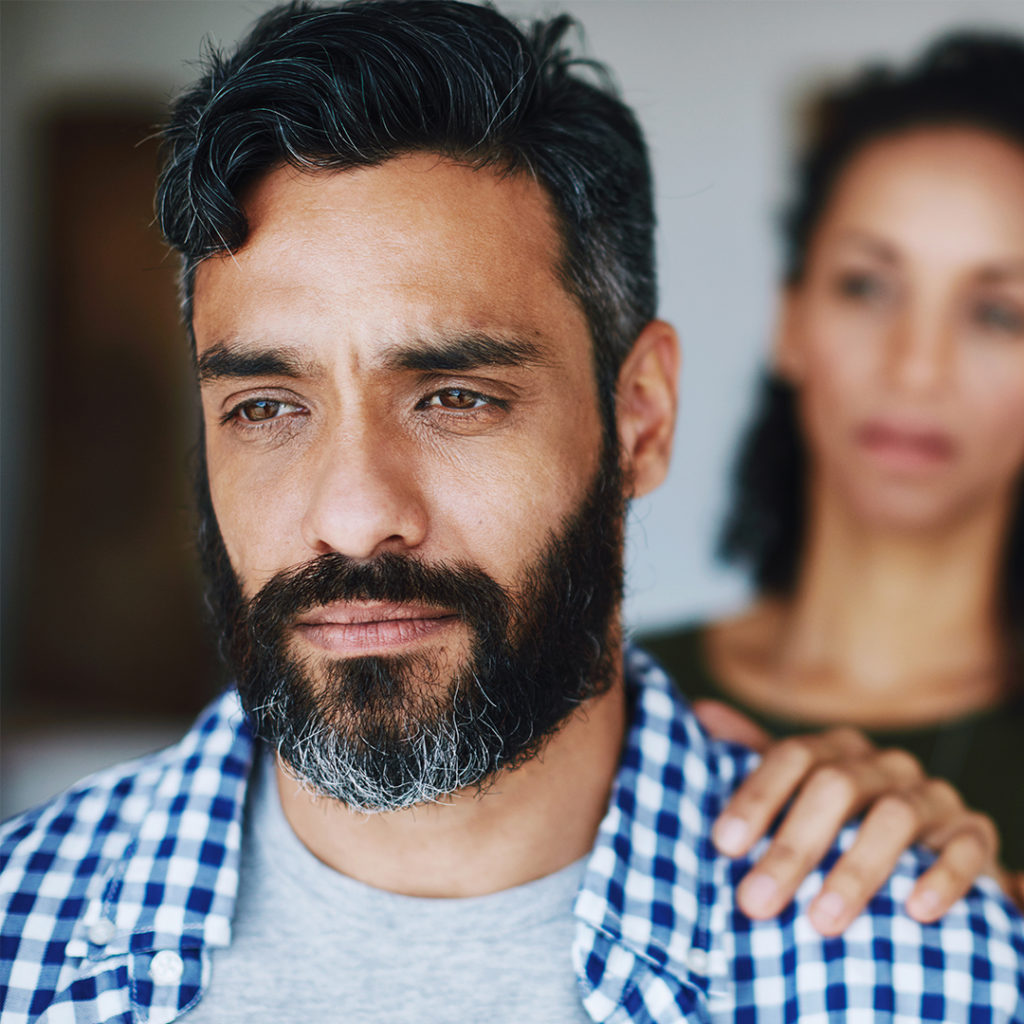
Can a woman be fertile at any age? Frankly, I wish the question was added to biology classes in every high school. It could make young women not only more aware of their bodies but also of the harsh reality of the passage of time and its impact on their ability to have children.
You see age-related infertility can’t be eradicated! There is no vaccine or medicine to stop the aging of a woman’s eggs and keep them young and fertile so she can choose to have a baby whenever she wishes.
Right now the only remedy is the option of freezing some eggs when you are young. These eggs can then be used to try and get a pregnancy later in life.
Can You be Fertile at Any Age? The Short Answer is No
 Ok, let’s get men out of the way first before discussing female fertility, decade by decade.
Ok, let’s get men out of the way first before discussing female fertility, decade by decade.
As you may know, men are totally different from women! Nowhere is this truer than for fertility. Unlike women, men can make sperm. They have cells in their testicles capable of growing fresh sperm every single day, millions and millions of them!
In fact, men are so good at making sperm that they manufacture over 1,000 sperm with every heartbeat. Once their sperm is healthy and has no other issues, men can become fathers well into their 60s. So can you be fertile at any age? If you were a man, The answer would be yes.
The stark reality for women, on the other hand, is that we face declining fertility as we age. It’s inevitable and it starts much sooner than people think.
To understand why we need to talk about human eggs. Eggs are microscopic cells and are some of the most precious cells in the human body. Women are born with all the eggs they will ever have.
These eggs grow in a woman’s ovaries during her fetal life: That’s when you’re actually a tiny 2cm long fetus growing inside your own mother’s womb. Of the millions of microscopic eggs a baby girl is born with, only 300 to 400 of them are destined to be released or ovulate.
Of these, only a very few will make a baby. The vast majority of eggs die as time goes by. Thousands of eggs die every month!
Fertility in your 20s — A Great Time
Your twenties are a time in a woman’s life when fertility is generally very good. Your eggs are usually good quality and you should conceive easily, if everything else is working. Around one in every three eggs released in your 20s should make a baby.
Of course there are other problems that might cause fertility struggles, like blocked fallopian tubes or sperm issues, but it is rare to have low egg levels at this age. Unwanted pregnancies are common in your 20s and 30s, so get advice on contraception if you do not want a baby.
There are exceptions: One in every hundred women in their 20s and 30s will have no eggs left. This is called the menopause. When the menopause happens at a young age (under 45 years old) it is called premature menopause or premature ovarian failure (POF). It is more common in women of colour. It is also more common if you’ve previously had surgery on your ovaries.
There are no symptoms to watch out for. You can pick up a warning sign before the early menopause happens, by doing a blood test called AMH. This blood test gives you an estimate of the number of eggs you have stored in your body.
Fertility in your 30s — Egg Numbers start Declining
Can you be fertile at any age.? Let’s get into your 30s. This is a wonderful decade. You’re moving up the career ladder, you’re more sure of yourself, you’re taking care of your health.
But did you know from around the age of 32, your fertility starts dropping and your eggs are getting lower in numbers due to egg death. Surprised? Yes, it’s true, this is much earlier than most people realise. In their mid-30s women lose 1,000 eggs every month!
The news isn’t all bad. Egg quality is still good in your 30s. Around one in every three to six eggs will make a baby in your mid- to late-30’s. Then, after the age of 38 egg quality also drops, and only around one in every 10 eggs will make a baby.
So, in your 30s, if everything else is working in your fertility, you can expect to have an opportunity to get pregnant between one to four times a year if you are not using contraception.
If you are considering freezing some eggs to use when you are older (this is called Social Egg Freezing), and you’ve left it until your 30s, then now is the time to get a move on! If you wait until your 40s it’s too late for Social Egg Freezing.
Can You be Fertile at Any Age? In your 40s you may need Some Help!
 From the age of 40, infertility is a part of normal life. Fertility is getting low. Both egg numbers and egg quality are poor. At the age of 40, only about one in every 12 eggs will make a baby. For healthy women who are lucky, they may get one pregnancy opportunity a year at 40.
From the age of 40, infertility is a part of normal life. Fertility is getting low. Both egg numbers and egg quality are poor. At the age of 40, only about one in every 12 eggs will make a baby. For healthy women who are lucky, they may get one pregnancy opportunity a year at 40.
At 41 it is even more lucky to get a baby. By 42 only around one in every 20 eggs will be good, so pregnancy is getting very difficult. And, by the time you are 45, this figure is dramatically low and only one in every hundred of your eggs will make a baby.
At the same time, with age come many other medical problems that can affect your fertility. For some women, tubal problems, or sperm problems are now also a big issue, co-existing with your natural egg problems. Many women will not get pregnant at all in their 40s.
As the egg quality gets worse, it is not just infertility that women face. Poor quality eggs can make a pregnancy, but one that is not genetically normal. What’s more, at 40 and older, miscarriages become much more common.
Sadly, even if a woman does get a magic pregnancy at the age of 45, there is a substantial chance of miscarriage or even of having an abnormal baby due to the poor quality eggs. Being fertile at any age but especially in your 40s is not 100% guaranteed.
All is not lost though! The good news is that a fertility doctor can still step in, and there are a range of medical interventions that can help you make a baby.
Fertility in your 50s — A Baby would be a Miracle
Around the age of 50, a woman’s eggs are nearly all gone. Being fertile at any age seems a past dream. Women are naturally infertile in their 50s. It is not impossible to become pregnant after 50, but it is incredibly rare. Even if there are a few eggs left, the chance of any of the eggs being good quality and able to make a baby is one in a million.
The menopause, or last period, happens when there are no eggs left. Most women go through the menopause around the age of 52.
A natural pregnancy in a woman’s 50s is a true miracle. Because of the significant chance of poor egg quality, there’s a very high chance of miscarriage for any of these miracle pregnancies.
Here’s where we need to get rid of one of the many misconceptions that women have about their eggs and about being fertile at any age. Many women believe that having periods equals having eggs. This is not so: Having periods does not mean you are releasing eggs. The fact is, in the five years before a woman’s menopause there will often be no egg releasing. This is despite periods coming on.
Are there Cures for Age-related Egg Damage?
Medicine has come a long way when it comes to understanding the mechanisms causing human egg aging, but, right now, there are still no preventative treatments or treatments to reverse the effects of age on eggs.
There are many supplements being advertised as “miracles for egg health” including a variety of anti-oxidants like Vitamin B complex, Melatonin, Myo-Inositol and CoQ10. But proceed with care.
The jury is still out on whether these expensive supplements actually do anything helpful, and related scientific studies have been criticised due to bias and low quality. Certainly, recent large, high quality studies have shown these supplements to do nothing to help male infertility.
What lies Ahead? Let’s talk Science!
An exciting recent study has shed some light on human egg ageing. Chromosomal errors are found in 50-70% of eggs in women over 35, but also surprisingly are also found in around 20% of eggs of women in their early 20s.
In this study scientists used a super-high-resolution camera to observe changes in human eggs in the seconds before their fertilisation by a sperm. This is a time when the genetics in the egg are growing and splitting in half, and it’s a time when things can easily go wrong and cause an egg that looks great but is actually genetically abnormal.
This study took us one big step forward, by finding that it is defective action in both the spindles (the structural rods in the egg that hold the genetics in the right place) and the protein Cohesin (which sticks the chromosomes together) that is causing egg damage.
We also know that sperm contains genetic damage, and that while young eggs can repair some of this genetic damage in sperm, older eggs are less good at making these repairs, leading to a higher rate of abnormal embryos that cause infertility and miscarriage in older women.
The future for preventing egg ageing and being fertile at any age looks hopeful in the next decade with plenty of research illuminating the causes, and innovative new treatments on the not too distant horizon. Watch this space! Infertility medicine may soon take another giant leap forward!